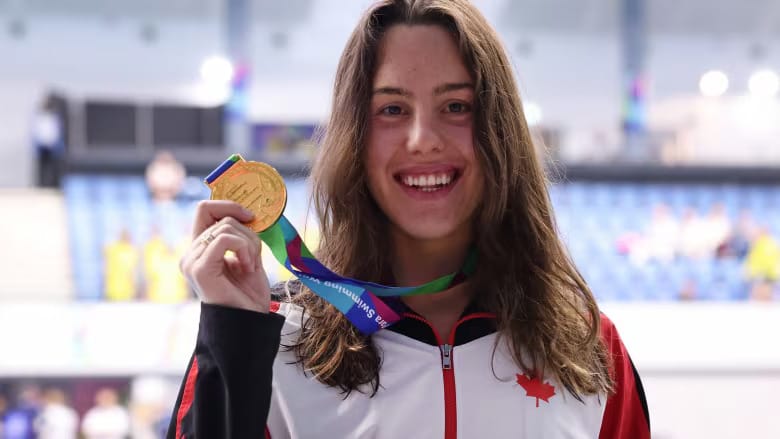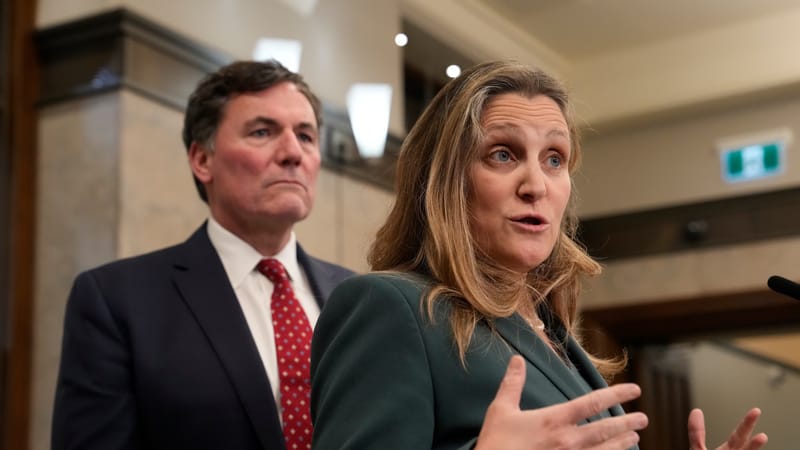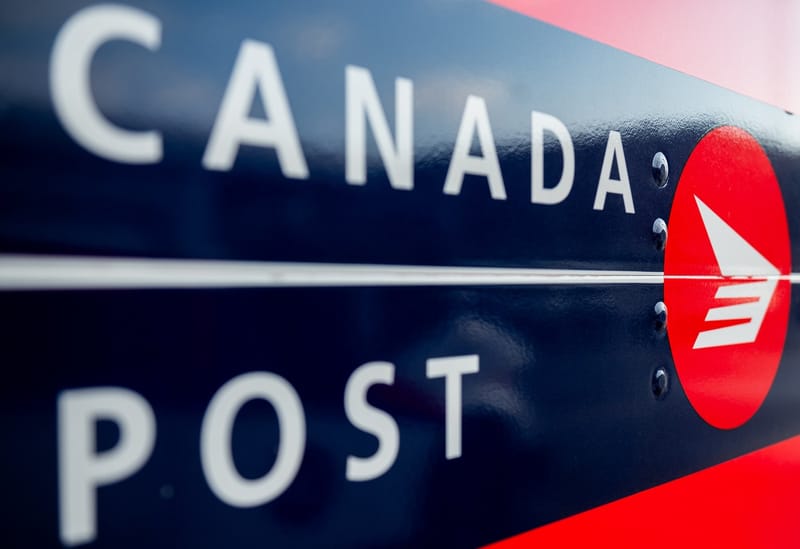Canadian Swimming Star Aurèlie Rivard Seeks to Regain World-Class Form in 400m Freestyle at Paralympics
"For me, it's about acknowledging the issue without dwelling on it," he said. "It's about small victories every day, ensuring that if a situation arises, she has the tools to handle it."

There’s no denying Paralympic swimmer Aurèlie Rivard's exceptional talent.
The Saint-Jean-sur-Richelieu, Que., native has earned 10 Paralympic medals, with half of them being gold. She has also secured 19 medals at world championships.
Rivard currently holds four world records in her S10 classification, which is designated for the least impaired freestyle, backstroke, and butterfly swimmers.
She has already reached more world championship podiums than any other Canadian woman. At 28, she is a serious contender to surpass Chantal Petitclerc and Michael Edgson, who each have 21 medals, as the most decorated Canadian summer Paralympian in history.
Rivard's coach, Marc-André Pelletier, summed it up perfectly: "she's f---ing good."
However, there’s one race, one discipline in particular, that has become a persistent challenge for Rivard.
In 2012, during her debut at the Paralympics, Aurèlie Rivard secured a silver medal in the 400m freestyle. By 2016, she upgraded that to gold. In 2021, she shattered her own world record to defend her title.
Then, something unexpected happened at the 2022 World Championships in Portugal.

Rivard was leading at the 50-metre mark, the 100-metre mark, and even the 150-metre mark. Her only serious competition came from Hungary's Bianka Pap, who was just a tenth of a second behind at the halfway point.
Rivard appeared strong, even extending her lead slightly by the 250-metre mark.
And then she stopped. Pap continued, gaining about a quarter-length lead as Rivard clung to the wall like a child in a swimming lesson.
Eventually, Rivard tried to resume. She dove underwater, resurfaced, took one stroke, then stopped again. After pausing briefly at the lane divider, she exited the pool.
The commentator speculated that Rivard might have swallowed water. It seemed like it could have been a one-time issue.
But a year later, at the World Championships in England, it happened again—this time without any apparent cause.
Rivard qualified for the final but suddenly withdrew before the race even started.
"Not that I was afraid of losing, that's not why I pulled out," Rivard recently explained. "I wasn't physically prepared. I didn’t know what to expect, and I had that big elephant in the room in my head. What if it happens again? I’m not ready to go through this a second time."
As Paris 2024 approaches, Rivard faces a different kind of challenge. While there will always be the question of how many medals she can win, when it comes to the 400m freestyle, she’ll have to answer a different question: how?
How will she feel in the green room? How can she conquer that mental block and clear her mind to dive into the water? And how can she endure the gruelling 400 metres and emerge with a medal?
When asked about these challenges, Rivard had a question of her own.
"How much time do you have?" she quipped when the topic of the 400m freestyle was brought up. "It’s been complicated, to say the least. People first recognized me through the 400. That was my first medal in London. It was the first goal I ever set for myself. It was the first time I thought, ‘Oh my God, maybe I can win a gold medal in an event.'"
"I have invested so much effort and time into this race over the past decade. I feel like I've pushed myself, maybe not to the absolute limit, but so far that there's very little room left for improvement. And because I've won it so many times, and it was never easy, my standards for this race are extremely high."
The women's S10 400m freestyle event is scheduled for September 5 at Paris La Defense Arena, with heats in the morning and the final in the evening.
Rivard believes her recent struggles in the 400m freestyle stem from the immense expectations she places on herself. Any small mistake now triggers even greater self-doubt.
Perhaps when Pap posed a real threat to her title in 2022, Rivard’s ego intervened—anything less than gold felt unacceptable.
"I can't just dive in and do a full 400 for fun. It never happens. I have too many reference points, I've done it too many times. And it's a hard race—physically, it's really tough. As soon as I feel like something's off, it becomes really difficult for me," she explained.

To manage her mental challenges, Rivard began working with a sports psychologist after her withdrawal in 2023. She now acknowledges that returning to a major event like the World Championships so soon after her 2022 experience was a mistake, as she hadn't fully recovered from the shock of her sudden stoppage.
Though she never considered skipping the Paralympics, Rivard has taken a different approach, focusing on rebuilding her confidence gradually.
From a racing perspective, Rivard attributed her lack of preparation before 2022 to the pandemic, which limited her exposure to competitive environments where she could be tested.
Now, she’s been training full-time for 18 months. She trains in Quebec City with her coach, Marc-André Pelletier, alongside a group that includes two-time Paralympic medallist Nicolas-Guy Turbide and two-time able-bodied world medallist Katerine Savard.
Pelletier’s training group benefits Rivard, as competitors like Savard can push her in the pool more than some of her fellow Para athletes.
"I have to put her in situations that closely resemble what she'll experience in competition. That's the point of racing against girls at her level—racing, racing, racing," he said.
Due to a knee injury, Rivard dropped the 200m individual medley for Paris, leaving her with just four individual events: the 100m backstroke, and the 50m, 100m, and 400m freestyle.
Pelletier said this streamlined program simplifies training somewhat, as freestyle is less complex than, say, breaststroke.
And with Rivard already addressing the mental side of her challenges, Pelletier's focus remains firmly on her performance in the pool.
"For me, it's about acknowledging the issue without dwelling on it," he said. "It's about small victories every day, ensuring that if a situation arises, she has the tools to handle it."
From a physical standpoint, Pelletier doesn’t foresee much competition for Rivard.
"If she decides she's going to win, she will win. But she needs to be confident. She needs to be relaxed," he said.
Rivard knows this, too.
"It's me. I am my biggest competitor. The person that scares me the most in that race is me. I want to beat me. I don't really care about the other girls."






